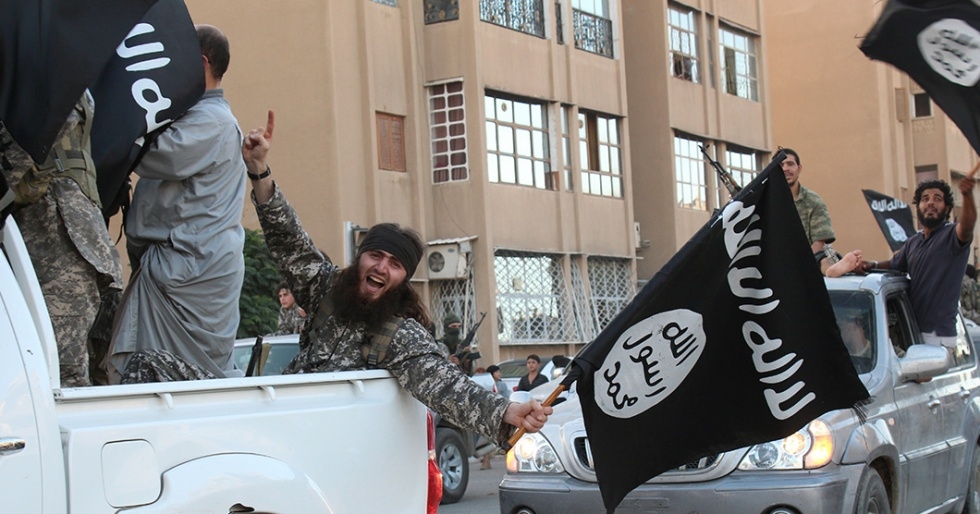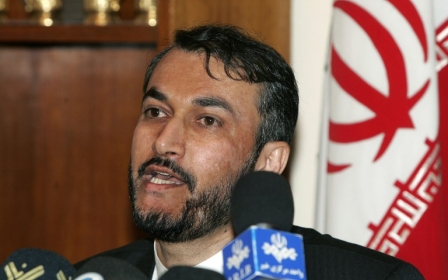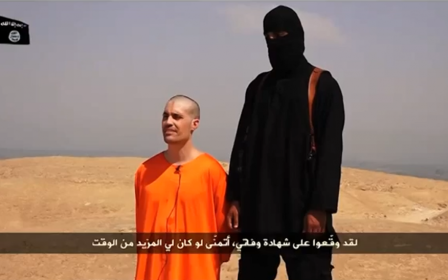As US says IS fight could expand to Syria, voices call for talks with Assad

The United States admitted Thursday that the Islamic State is the most dangerous group it has faced in recent years, and warned that the Middle East faces a long-term battle to defeat it.
Pentagon chiefs said the militant group could be eradicated if local Sunni communities reject it and regional powers unite to fight it. However, they also controversially insisted that such an operation could succeed if the US and its allies expanded the battle beyond Iraq and expanded it to Syria.
And despite US insistence that it will not talk to Syrian President Bashar Assad as both now face a common enemy, calls are emerging outside the US for talks with Assad.
"In order to put pressure, real pressure on [the Islamic State], the two sides will have to talk to Assad in order to put pressure," Richard Dannatt, the former head of the British army, told the BBC on Friday.
The Americans, at least publicly, remain focused on military tactics to confront the "barbaric" militants, as Defense Secretary Chuk Hagel called the group.
"They [IS] marry ideology and a sophistication of strategic and tactical military prowess," Hagel said.
"They are tremendously well funded. This is beyond anything we have seen," Hagel added while saying that the US needed to "take a cold steely look" at the group "and get ready."
Hagel made the comments after the US military revealed it had already carried out a failed hostage rescue mission inside Syria, and against the backdrop of new air strikes in Iraq.
The most potent sign yet that some kind of military intervention may be on the cards, came from General Martin Dempsey, who held a joint press conference with Hagel.
The chairman of the Joint Chiefs of Staff, said the group "has an apocalyptic, end of days strategic vision that will eventually have to be defeated."
Dempsey warned the militant's vision of a wider Muslim caliphate could "fundamentally alter the face of the Middle East and create a security environment that would certainly threaten us in many ways."
"Can they be defeated without addressing that part of the organization that resides in Syria? The answer is no," he said, when asked if the campaign against the group could go beyond Iraq.
With or against Assad?
The US has long backed moderate rebel factions, embroiled in a more than three-and-a-half year war against Assad's forces, and have repeatedly called for the Syrian president to step down, although fell short of providing advanced weapons that many felt were necessary to shift the tide in the rebels favour.
Despite promising to intervene if chemical weapons were used, the US failed to act on its own self-styled “red line” last August.
The security and political vacuum the protracted Syria crisis created in turn has been widely blamed for allowing militant groups like IS to rise up.
While IS originally had close links to Jabal al-Nusra the al-Qaeda proxy in Syria, the two groups split, prompting IS forces to launch a gruelling attack on other war-torn rebel factions. In recent weeks IS has also increasingly turned its guns on the Assad regime, ending months of what some commentators dubbed a strategic truce.
Any US intervention in Syria against Assad would therefore leave the US battling the same enemy as Assad, as well as his long-time supporters Iran.
US Vice President Joe Biden stressed earlier this week that while the countries shared a “common enemy” the paradigm of my enemies, enemy is my friend would never apply to Assad.
However, voices calling for talks with Assad, who has long labelled his brutal crackdown as an existential war with militants and championed himself as the defender of so-called secularism in the region.
Lord Dannatt, the former head of the British army who spoke out on Friday, said he thought it was inevitable that Britain would eventually start launching air strikes against IS and would expand its current monitoring and intelligence gathering mission in Iraq.
He further suggested that said the government should open talks with Assad, if it planned to combat IS.
Lord Dannatt comments about Assad were also echoed by Sir Malcolm Rifkind, the Conservative former foreign secretary and chairman of the intelligence and security committee, who said it was sometimes necessary to work with "extremely nasty" people in order to defeat enemies who were even worse.
The stepping up of rhetoric comes after IS released a video this week, showing a militant with a British accent beheading American journalist James Foley, and threatening a second US hostage.
The murder has stoked fears in Britain and beyond that the territory the militants have seized in Syria and northern Iraq could become a launching pad for a new round of global terror attacks.
And as part of that worrying trend, the US State Department estimated that there are about 12,000 foreign fighters from at least 50 countries in Syria.
Almost 200,000 people, including at least 9,000, children have been killed in the Syria conflict so far, the UN said today after a year of silence on the spiralling death count.
In neighbouring Iraq, the humanitarian toll has also been huge, with more than 1.5 million Iraqis internally displaced since IS launched a widespread offensive in early June.
New MEE newsletter: Jerusalem Dispatch
Sign up to get the latest insights and analysis on Israel-Palestine, alongside Turkey Unpacked and other MEE newsletters
Middle East Eye delivers independent and unrivalled coverage and analysis of the Middle East, North Africa and beyond. To learn more about republishing this content and the associated fees, please fill out this form. More about MEE can be found here.




